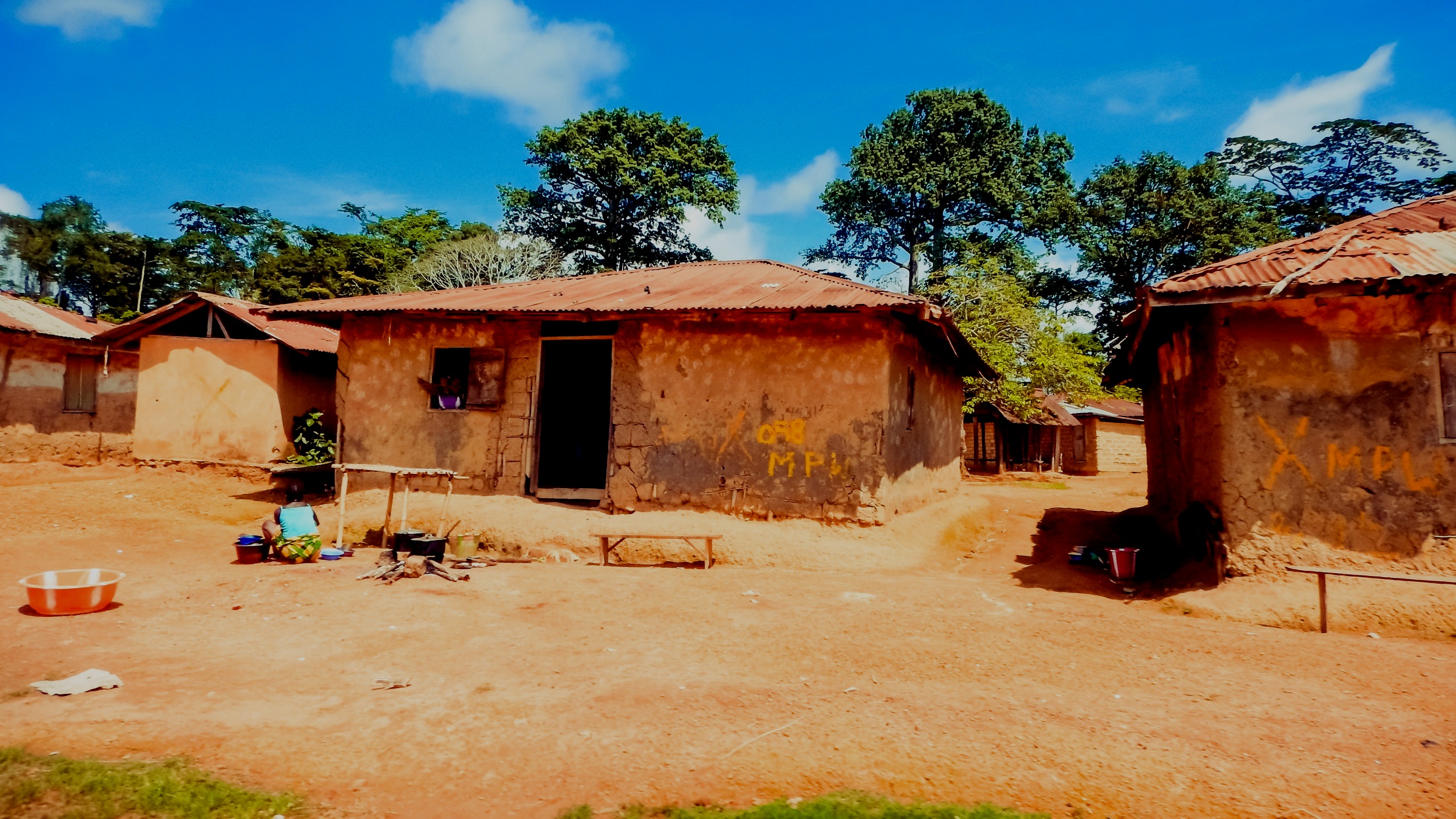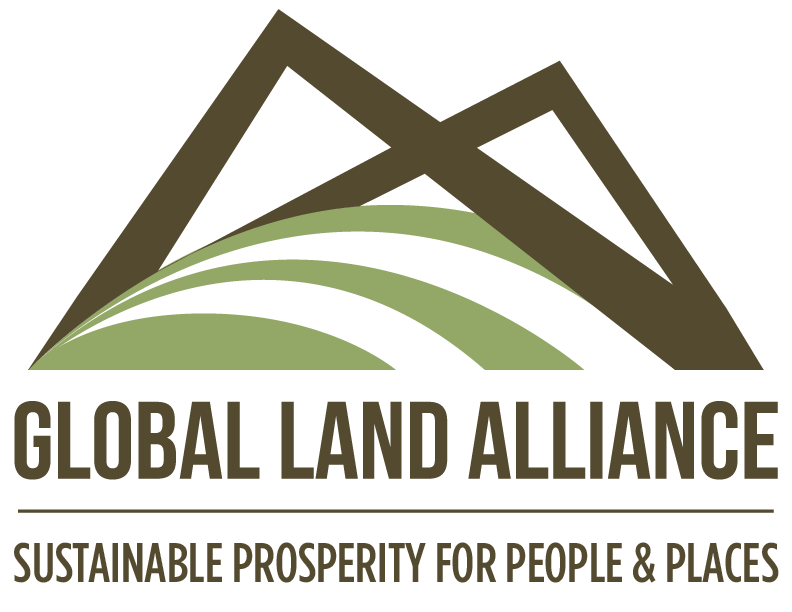
Analysis & Commentary
This section contains articles written by Global Land Alliance staff and partners, on a variety of topics relating to land tenure, rights, and governance; spanning countries around the world.
Free, Prior and Informed Consent (FPIC) for Fair and Equitable Land Governance
Indigenous Peoples and Local Communities (IPLCs) across the world are affected by environmental, social and cultural degradation that are tied to the way land tenure is governed. In international discourse there has been an increasing focus to not just uplift the struggles of IPLC, but to make sure that their voices, sovereignty and knowledge have a seat at the table. The inclusion of Indigenous peoples in decision making processes and self-determination goes beyond consultation, the rights set forth under United Nations Declaration on the Rights of Indigenous Peoples (UNDRIP) obliges the free, prior and informed consent.
Treaties, Indigenous Land and Resource Rights in the Great Lakes and Enbridge’s Line 5 Pipeline: Interview with Whitney Gravelle
This summer, Global Land Alliance (GLA) spoke with Whitney Gravelle, president of the Bay Mills Indian Community in Michigan. We discussed with community leaders to better understand their voices, actions and leadership in the struggle against encroachment from Enbridge Energy Corporation. We also explored, how different levels of the US government handled treaty rights in their ceded and unceded territories, consulted or sought Free, Prior and Informed Consent (FPIC) processes, and how they see the Line 5 pipeline interacting with sovereignty over the land and waters their communities have long stewarded.
Treaties, Indigenous Land and Resource Rights in the Great Lakes and Enbridge’s Line 5 Pipeline: Interview with Aurora Conley
This summer, Global Land Alliance (GLA) spoke with Aurora Conley, Vice Chair of the Anishinaabe Environmental Protection Alliance and of the Bad River Band of Lake Superior Chippewa. We discussed with community leaders to better understand their voices, actions and leadership in the struggle against encroachment from Enbridge Energy Corporation. We also explored, how different levels of the US government handled treaty rights in their ceded and unceded territories, consulted or sought Free, Prior and Informed Consent (FPIC) processes, and how they see the Line 5 pipeline interacting with sovereignty over the land and waters their communities have long stewarded.
People-Land Relationships on the Path to Sustainable Food Security
Land tenure security is one driver of success in sustainable agriculture for food security. Here, we review the global rhetoric and evidence trends and map the evidence against both Sustainable Development Goal 2 and the World Food Program definition of Food Security. We recognize how conflict, impacts of climate change, and large-scale land-based investments interact over time with local land tenure, resulting in consequences for sustainable agriculture and food security.
New IPCC Climate Report Stresses Indigenous & Local Land Rights 58 times: Let’s Respond with a Concrete Tenure Plan
The latest IPCC climate report mentions tenure security a whopping 58 times. This is a welcome shift in emphasis from the UN – strengthening land rights is a just and sustainable way to protect vulnerable landscapes in the climate fight, and one that works. By the report’s own estimate, time is almost up. As we push closer to the point of no return, the world needs to stop talking and start acting. Ramping up the recognition of land rights could help us preserve enough of the natural world to pull us back from the brink.
Supporting Local Land Governance: Land Use Mapping and Community Sample Surveying in Lombok, Indonesia
In Indonesia, the decentralization of land governance remains an important step in securing recognition of rights for communities and citizens. For many local government offices, funding and technical resources has been a barrier for completing village mapping activities, leaving knowledge gaps as to how vulnerable communities are to conflict, encroachment, and insecurity. The village boundary setting and resource mapping activity of the Central Lombok District Government seeks to address this gap. In 2020 Global Land Alliance and Cadasta Foundation, working with the Indonesian organization Yasan Puter, supported a rapid sample survey to assess perceptions of land tenure insecurity and land use in the Labulia
Honduras’ Overlapping Crises Have Their Roots in Land and Natural Resource Policy Failures
The convergence of the pandemic, climate shocks, and militarized borders presents a dire situation for human rights. Will the Biden administration prioritize support for vulnerable populations in securing land and resource rights and livelihoods to build social safety nets for crisis resiliency?
The Power of Legitimacy in the Land for Climate Mitigation Discourse: Indigenous & Local Community Knowledge, Participation, and Agency
In August of 2019, the Inter-Governmental Panel on Climate Change published a seminal report on the nexus of land use for climate mitigation directed at policy makers globally. The report acts as a key scientific input into climate and environment negotiations. This poster published in the context of the 2020 World Bank Conference on Land an Poverty investigates how the international media and the land sector discourse-entrepreneurs portray indigenous voices, actions and knowledge within the context of the IPCC Land and Climate Special Report.
Securing Forest Tenure: GLA Partners to Pilot Forest Tenure Assessment Tool in three Countries
Forests are a nexus of broadly held policy goals such as poverty reduction, economic growth, conservation and climate change. Most forests are governed, in practice, through community-based tenure systems. GLA is continuing its role with The World Bank’s Securing Forest Tenure Rights for Rural Development program as a technical advisor to pilot the Forest Tenure Assessment Tool (FTAT) in Zambia, the Democratic Republic of Congo and Myanmar.
Out of Africa, on to Asia: The Land Tenure Journey of Dr. John Bruce
As a young law school graduate, John Bruce joined the Peace Corps in Ethiopia in 1968, a move which ultimately transformed his career in land tenure. He became an expert on the intricacies of land tenure systems in Africa, later adding experiences in China and East Asia over several decades. As both a policy advisor and researcher, he taught at several institutions worldwide, including the Land Tenure Center at the University of Wisconsin-Madison. Global Land Alliance sat down with Dr. Bruce as he reflected on lessons learned for the sector, past to present.
Do No Harm In Systematic Land Formalization: A Model For Social Risk Identification and Prevention In Dominican Republic Fragile Watersheds
Slash and burn agriculture is commonly practiced by poor farmers living in fragile ecosystems in many places throughout the world, particularly relevant in Dominican Republic. GLA and REDDOM have been working to promote the adoption of agroforestry technologies and practices to reduce the negative effects of hillside agriculture, improve agriculture productivity and revert soil degradation while contributing to adaptation and mitigation to climate change.
Securing Forest Tenure Rights for Rural Development: An Analytical Framework
During the 2019 World Bank Conference for Land and Poverty, an Analytical Framework for the Securing Forest Tenure Rights for Rural Development initiative was launched, a first product of a longer partnership between World Bank and Global Land Alliance, funded by the World Bank’s Program on Forests (PROFOR).
Participatory Village Boundary Setting and Resource Mapping in Indonesia
Maps of administrative boundaries are important tools for governments and citizen as they directly impact allocations of social services and control of natural resources. In Indonesia, many local governments are working to establish village boundaries for the first time.
Global Land Alliance GIS Collaboration
The following poster was presented at the GIS Expo in South Florida in August 2018. It presents the outcome of a collaboration between Global Land Alliance (GLA), the Forest County Potawatomi Community’s Land and Natural Resources Division (FCPLNRD), and University of Florida (UF) Geomatics Program. The group conducted a technical exchange to better understand the potential of Unmanned Aerial Systems (UAS) technology in assessing and managing Forest County Potawatomi community land, natural resources and infrastructure.
UAV Technical Demonstration with Forest County Potawatomi
Global Land Alliance (GLA), in collaboration with professors from the University of Florida’s Geomatics Department and the Forest County Potawatomi Community Land Information Department, conducted a hands-on, technical demonstration in northern Wisconsin this past June, 2018; exchanging ideas on the potential benefits of utilizing Unmanned Aircraft Systems (UAS) in assessing the Community’s natural resources and physical infrastructure.
A Qualitative Assessment of Expected and Unforeseen Results of Haiti's Land Tenure Security Project in Rural Areas
In Haiti, in addition to the insecurity experienced by informal occupants, users or tenants of State and private lands, “tenure insecurity” relates to the generalized lack of clarity about land ownership, namely to the lack of knowledge, based on legal proof, and of publicity about parcel boundaries, the identity of owner(s), and ownership rights.
Challenges and Opportunities for the Formalization of Uncompensated Expropriated Private Lands in the Dominican Republic
This paper presents the challenges and possible opportunities to resolve an intractable issue plaguing both land tenure security and social equity in the Dominican Republic – an issue which is a remnant of the agrarian reform process and in particular a result of uncompensated expropriations of private lands.
Managing a Native American Legacy of Land and Natural Resources: Development and Implementation of the Forest County Potawatomi Land Administration and Territorial Management System
This paper recounts the development and implementation of a land administration and territorial management system for the Forest County Potawatomi Native American Community of Wisconsin. This system can serve as a model for not only native communities of the United States, but communities throughout the World seeking to preserve and maintain control of their land and natural resources, especially in situations of encroachment and competition.
Promoting Rural Land Tenure Security in Haiti: Ensuring Community Participation and Engagement Through a Tailored Public Consultation Process
Public consultations prior to land tenure programs can be inclusive, gender-oriented, transparent and participatory processes that help set a similar tone for implementation. Public consultations provide an opportunity to explore environmental and social risks of a land program in a manner that puts stakeholders’ concerns at center stage and that can result in forms of participatory monitoring.
Promoting Rural Land Tenure in Haiti
Over the past month, CIAT (Haitian Inter ministerial Committee on Territorial Management) has implemented the public consultation process designed by Land Alliance to engage their target communities in a participatory process to establish a good-willed and transparent relationship between the communities and the project. The teams have held public consultation meetings at 14 different communal sections targeted in the project.



















